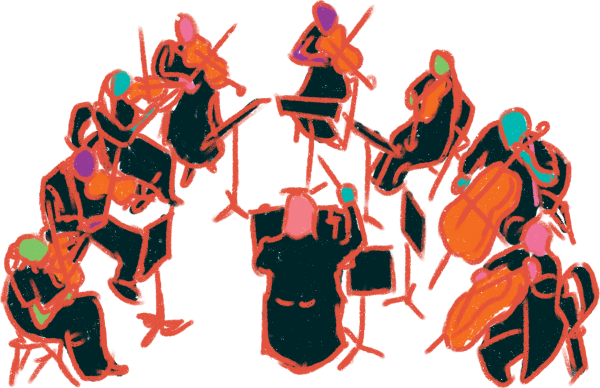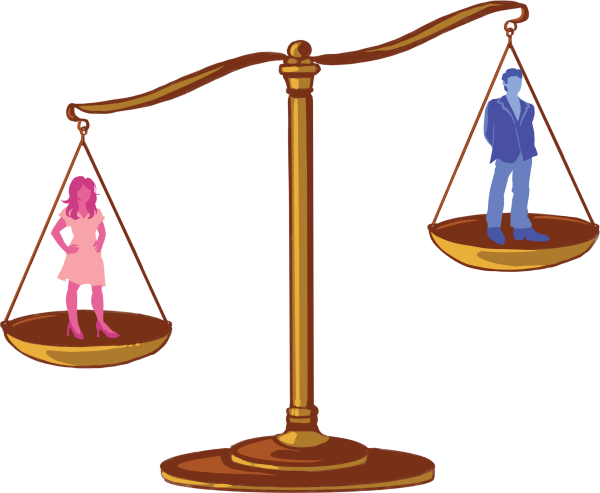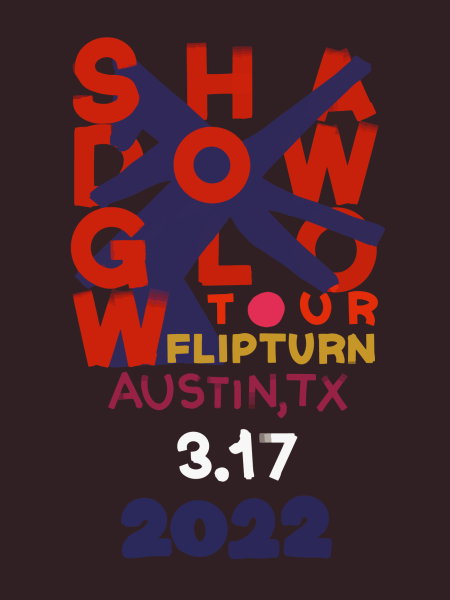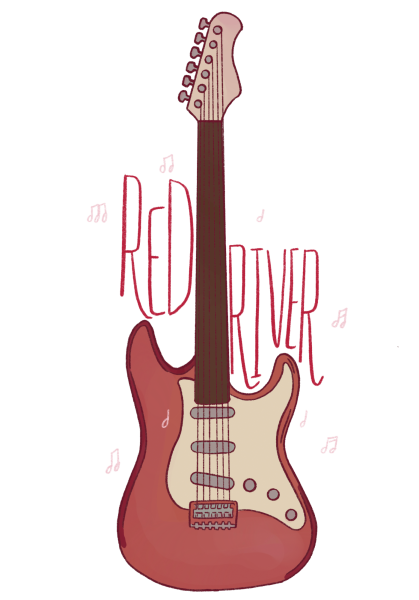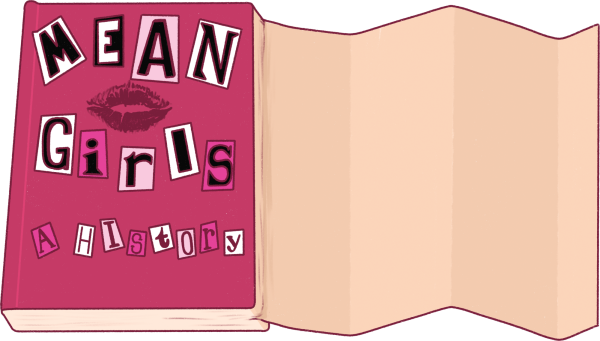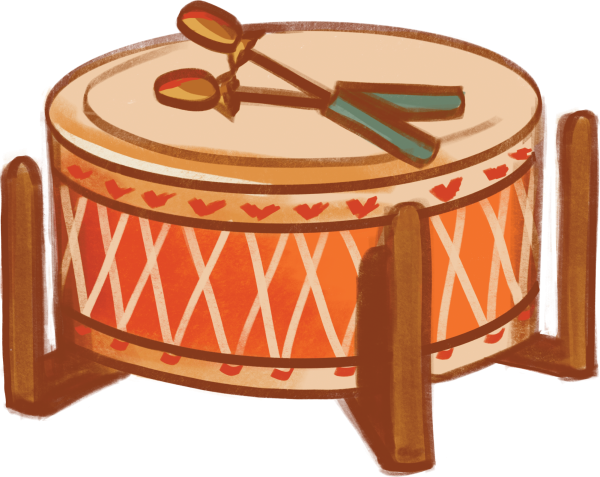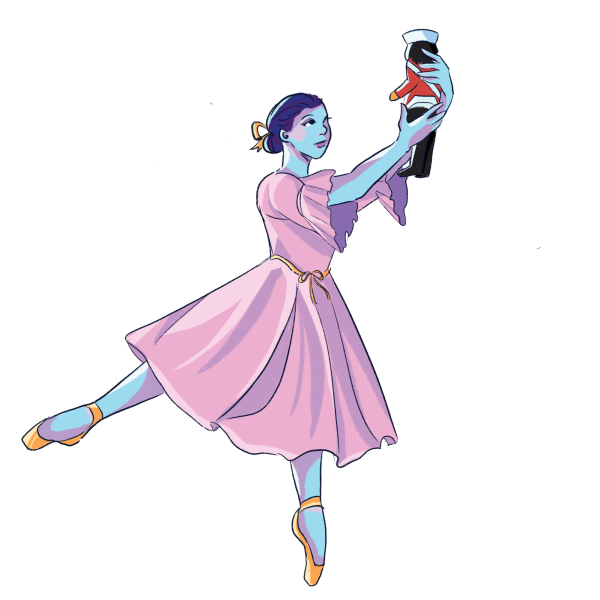Local comics artists find their niche with webcomics
May 1, 2018
Posters, action figures, and keychains of the most well known superheroes and their symbols line the walls. Colorful pages bound by flimsy spines or hard covers fill the shelves.
Every year, comics are promoted by the North American comic book industry through an event on the first Saturday of May. This year, Free Comic Book Day lands on May 5, and in Austin is celebrated by many comic book creators who do not work for major comic book companies like Marvel or DC Comics. These independents enjoy the freedom of new styles of storytelling through physical comics and webcomics. Rachel Weiss, webcomics creator and co-creator of POMEgranate Magazine, is one of them.
“Webcomics reach audiences that Marvel and DC are barely even considering, and it’s empowering communities in ways that are so important,” Weiss said. “Artists that have never been allowed a voice of their own are taking the mic and making comics that speak to a new kind of industry.”
Weiss has been reading and making webcomics for 15 years but started with the comics page of The Daily Texan with the other creator of POMEmag, Carolynn Calabrese.
“Carolynn Calabrese and I used to talk all the time about founding a magazine that would really embody all the things we love — comics, funny ladies, sincere feelings, weird pop culture stuff,” Weiss said. “We had a secret agenda of making comics more accessible to people who maybe felt alienated from the traditional comics boys club.”
Another paper-cartoonist-turned-webcomics-maker, Joseph Devens, creator of Whale, said webcomics are becoming more popular and easier to produce with the increase in reliable access to the internet and a computer.
“It’s easier making webcomics than newspaper comics because printing presses are the size of airports and cost just as much to maintain,” Devens said. “Webcomics are a wildcard!”
Devens didn’t start his career with creating webcomics. Instead, he began creating cartoons as a child and decided his future early on.
“My mom is very creative and artistic, and my dad is very funny, so I think that’s why I got into watching cartoons and drawing comic strips,” Devens said.
Later on, this hobby led to Devens becoming comics editor for The Daily Texan, the newspaper of the University of Texas. His webcomic, Whale On The Web, is a way to preserve the original Whale comics as well as make more.
“I’d done a comic strip for my high school newspaper starring [characters] that would later appear in Whale. Then, when I went to college, my friend Drew bothered me into not quitting,” Devens said. “Then I remembered a joke that me and my high school friends often laughed about, which was a big, talking whale hosting a children’s TV show and said totally inappropriate things, like exactly where babies came from, in graphic detail. I made that whale and one of the little girls from his show the main characters of the new cartoon I ended up doing for The Daily Texan.”
Both of these artists create comics. But because of the diversity in mediums— webcomics, physical books, even movies— the comic is a difficult art form to define.
“I think of it as two beats, strung together with images and maybe words,” Weiss said. “It’s almost like porn. You know it when you see it, I guess.”
Devens has a different definition.
“I’d say a comic is a series of drawings which convey ideas, stories or jokes when experienced in the right order,” Devens said. “There are so many kinds! Too many to imagine I think.”
Often times, the setting for a comic can be tricky to decide. For Devens, Austin’s charm found its way into his strip.
“I didn’t work Austin into the story of Whale except maybe for its trademark weirdness,” Devens said. “At first, I think I was in love with the mystique of not knowing where all of this was happening. Kind of like a ‘what state is Springfield in?’ sort of thing. But then I decided Whale needed to live near the ocean and I instantly thought of Montauk, New York.”
For many comic creators in Austin, the point of a comic is to convey genuine emotion. According to Weiss, this is something that POMEmag tries to support.
“As far as topics on POMEmag, we’re a bit all over the place,” Weiss said. “We like it when people make pieces that are just them really feeling their feelings — we 100 percent believe that if you love a weird niche thing and you have something interesting to say about it, then you’re the person we want to hear it from.”
Free Comic Book Day provides an avenue for independent comic creators to share their craft. In the face of comic company giants, the event exposes audiences to material not often in the limelight.
“Marvel and DC are the Shakespeare of the twenty-first century,” Devens said. “But these are the stories we are interested in telling right now.”

